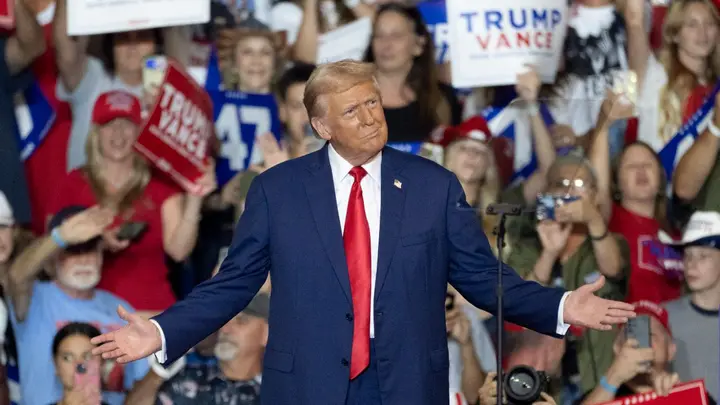President-elect Donald Trump has announced his intention to oppose a recent agreement brokered under the Biden administration that allows tens of thousands of federal workers to continue in hybrid telework arrangements until 2029. Speaking at a press conference on Monday, Trump criticized the deal, calling it a “gift to a union” and vowing to challenge it in court.
“If people don’t come back to work, come back into the office, they’re going to be dismissed,” Trump stated. “Somebody in the Biden administration gave a five-year waiver for this. It involves 49,000 people, and they don’t have to come back to the office. They just signed this thing—it’s ridiculous.” Trump made it clear that his administration would prioritize bringing federal workers back to the office, signaling an end to remote work policies established during the COVID-19 pandemic.
The deal in question was reached earlier this month between the American Federation of Government Employees (AFGE), the largest federal workers’ union, and the Social Security Administration (SSA). According to Bloomberg, the agreement formalizes current telework policies, allowing roughly 42,000 Social Security employees to continue working remotely in varying capacities through October 2029. The agreement specifies office attendance requirements ranging from two to five days per week, depending on job roles and responsibilities.
AFGE National President Everett Kelley defended the deal, stating that telework has proven beneficial for both taxpayers and federal employees. “Telework and remote work are tools that have helped the federal government increase productivity, maintain continuity of operations, and improve disaster preparedness,” Kelley said. He also addressed misconceptions about telework prevalence, noting that only 10% of federal workers are fully remote, while over half cannot telework at all due to the nature of their jobs. Kelley emphasized that collective bargaining agreements are legally binding and expects the incoming administration to honor them.
In response to the telework policy, Trump has enlisted Elon Musk and Vivek Ramaswamy to lead the newly created Department of Government Efficiency (DOGE). Their focus will be on cutting government spending and improving operational efficiency. Musk and Ramaswamy have voiced their opposition to remote work, arguing that requiring federal employees to return to the office will encourage voluntary resignations, thereby reducing government payrolls. In an op-ed for The Wall Street Journal, they wrote, “If federal employees don’t want to show up, American taxpayers shouldn’t pay them for the COVID-era privilege of staying home.” Senator Joni Ernst of Iowa echoed these sentiments, pledging to collaborate with DOGE to reverse the SSA deal and “get bureaucrats back to work.”
The clash over federal telework policies highlights broader debates about the future of workplace arrangements and government efficiency. As Trump’s administration prepares to take office, the fight over hybrid work agreements is poised to become a key battleground, reflecting ongoing tensions between labor unions and conservative efforts to streamline federal operations.
